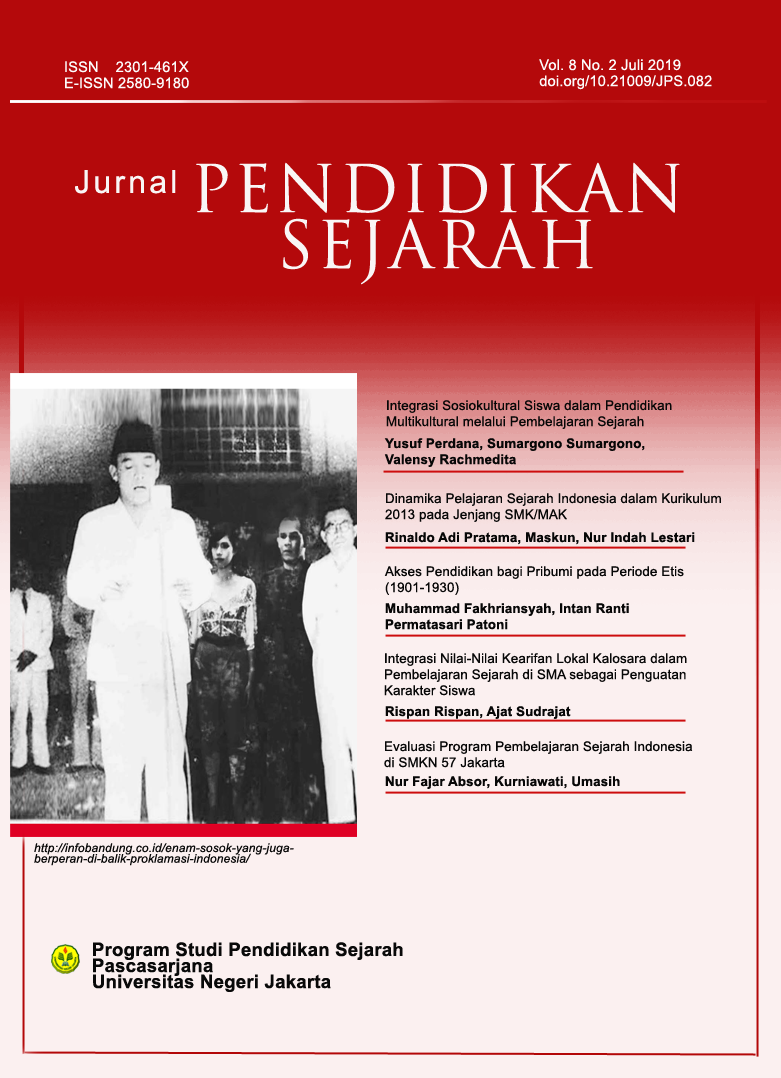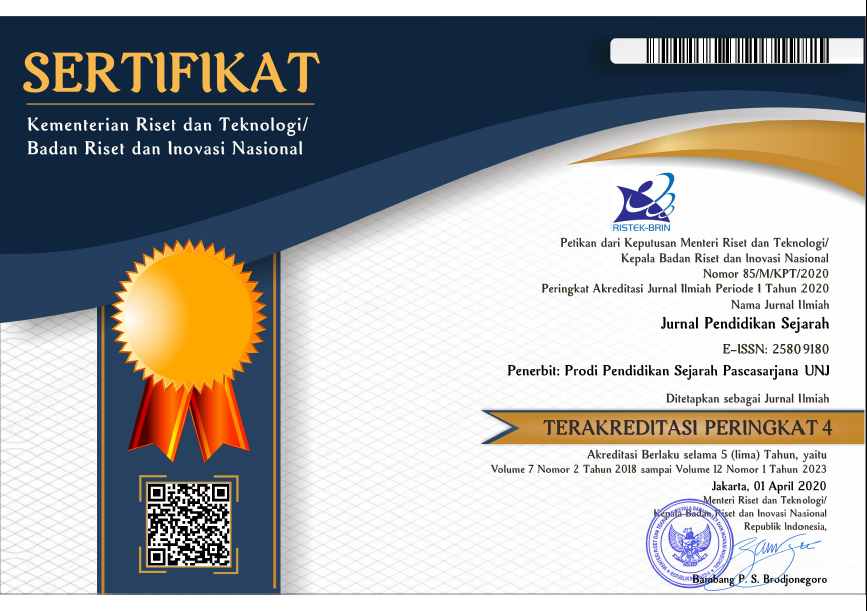Akses Pendidikan bagi Pribumi pada Periode Etis (1901-1930)
DOI:
https://doi.org/10.21009/JPS.082.03Keywords:
Educational Access, Indigeneous People, Ethcical PolicyAbstract
This article examines the dynamics of the indigenous people of the Dutch East Indies' access to education during the Dutch Etichal Policy period. Considering that, the Netherlands was the longest-running country exploiting the Indies, the country was obliged to bear the burden of reciprocation on their colony. The burden of reciprocity was realised through an Ethical Policy that has three programs. They are irrigation, transmigration, and education. Of the three, Education was the program that had major impacts on the Indonesian national movement. This research used historical method. The result of this research showed us that although education had succeeded in undermining the Dutch colonial domination, the education during the Dutch Etichal Policy period was not fully given as a whole by the colonial government. Instead, it was very limited. The Dutch colonial policies, especially the one concerning education were driven by their interest of economic benefits for themselves over the improvement of the indigenous people of the Dutch East Indies' welfare.
Artikel ini membahas mengenai dinamika akses pendidikan bagi pribumi saat berlangsungya Politik Etis. Seperti yang diketahui, Belanda sebagai negara yang terlama mengeksploitasi Hindia Belanda membuat negara tersebut menanggung beban balas budi terhadap koloninya. Beban balas budi tersebut terwujud melalui program Politik Etis yang memiliki tiga program, yakni irigasi, transmigrasi, dan edukasi. Dari ketiga itu, pendidikan merupakan salah satu program Politik Etis dan salah satu program yang memiliki dampak besar bagi pergerakan nasional. Penelitian ini menggunakan metode historis dengan analisis studi kepustakaan. Hasil penelitian menunjukan meskipun pendidikan berhasil meruntuhkan dominasi kolonial, pendidikan saat periode Etis pun tidak serta merta langsung diberikan begitu saja oleh pemerintah kolonial meskipun tujuan Politik Etis adalah balas budi, pemberian pendidikan diberikan secara serba terbatas. Kebijakan-kebijakan pemerintah kolonial, khususnya di bidang pendidikan didorong oleh kepentingan keuntungan ekonomi bagi mereka sendiri alih-alih oleh motif untuk meningkatkan kesejahteraan rakyat setempat.
Downloads
Published
How to Cite
Issue
Section
License
Copyright
Jurnal Pendidikan Sejarah work is licensed under a Creative Commons Attribution 4.0 International License.







